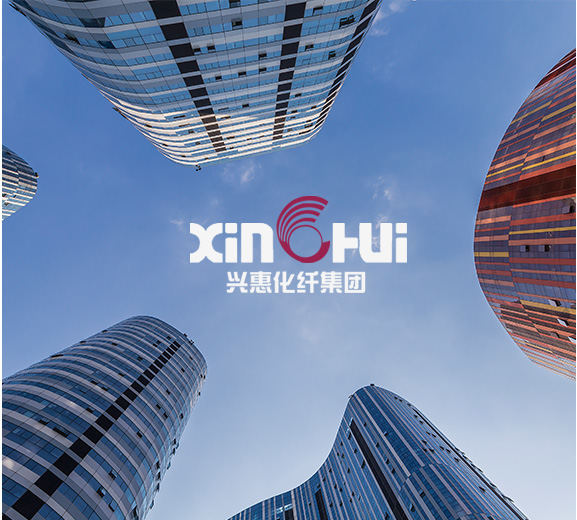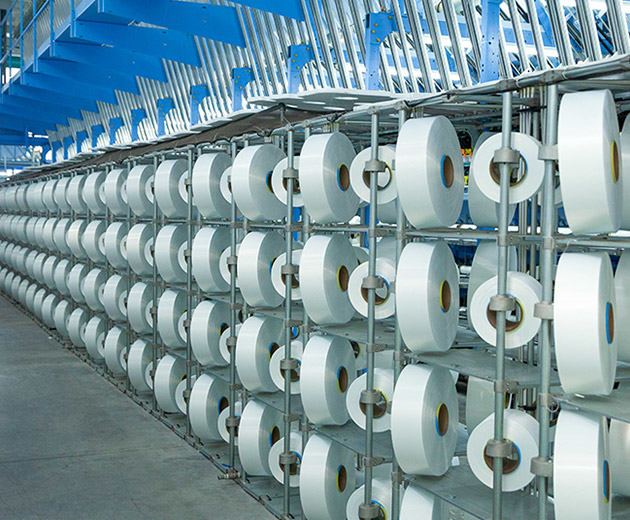Industry Knowledge Expansion
The Manufacturing Process of Polyester Spinning
The manufacturing process of polyester spinning involves several steps, including polymerization, melt spinning, drawing, and winding. Here's a general overview of the process:
1. Polymerization: The process begins with the production of polyester polymer. The main raw materials used are purified terephthalic acid (PTA) and monoethylene glycol (MEG). These raw materials are chemically reacted through a process called esterification or transesterification, resulting in a polyester polymer, commonly known as polyethylene terephthalate (PET). The polymerization process occurs in specialized reactors under controlled conditions.
2. Melt Spinning: Once the polyester polymer is produced, it is transformed into fibers through melt spinning. In this step, the polymer is heated and melted to form a viscous liquid. The molten polymer is then extruded through spinnerets, which are small holes or slits, to form continuous filaments. The spinnerets determine the shape and size of the filaments. The extruded filaments pass through a cooling chamber, where they solidify into individual fibers.
3. Drawing: The solidified fibers are then passed through a series of rollers or godets at different speeds to orient and align the polymer chains within the fiber. This process is called drawing or stretching and helps improve the strength, tensile properties, and dimensional stability of the fibers. Drawing can be done in a single-stage or multiple-stage process, depending on the desired characteristics of the final fiber.
4. Heat Setting: After drawing, the fibers may undergo a heat setting process. Heat setting involves subjecting the fibers to controlled heat and tension to stabilize their structure and prevent shrinkage. This step is crucial to ensure that the fibers retain their dimensional stability during subsequent processing and use.
5. Texturing (optional): Depending on the desired texture and appearance of the final product, the fibers may undergo a texturing process. Texturing involves imparting crimps, curls, or other irregularities to the fibers to increase their bulkiness, softness, and aesthetic appeal. Texturing can be achieved through various methods, such as mechanical crimping, air jet texturing, or false-twist texturing.
6. Winding: The finished fibers are wound onto bobbins or packages for further processing or shipment. This winding process ensures that the fibers are neatly packaged and ready for subsequent stages of textile manufacturing, such as yarn formation, weaving, or knitting.
The Advantages of Polyester Spinning in Textile Industry
Polyester spinning, which involves the production of polyester fibers, offers several advantages in the textile industry. Here are some key benefits:
1. Versatility: Polyester fibers can be spun into a wide range of yarns, fabrics, and textile products. They can be blended with other fibers such as cotton, wool, or viscose to enhance specific properties or create desired effects. This versatility allows manufacturers to produce textiles for various applications, including apparel, home furnishings, technical textiles, and industrial uses.
2. Durability: Polyester fibers are known for their high strength and durability. They have excellent resistance to abrasion, stretching, and shrinking. This durability makes polyester-spun textiles long-lasting and suitable for heavy-use applications. They can withstand repeated washing and maintain their shape and appearance over time.
3. Moisture resistance: Polyester fibers are hydrophobic, meaning they repel water and resist moisture absorption. This property makes polyester-spun textiles resistant to stains, mildew, and mold growth. It also allows them to dry quickly, making them suitable for outdoor and athletic apparel, swimwear, and other moisture-prone applications.
4. Wrinkle resistance: Polyester fibers have inherent wrinkle resistance, meaning they tend to retain their shape and resist creasing. This characteristic makes polyester-spun textiles easy to care for and maintain. They require minimal ironing or can even be wrinkle-free, making them popular for travel-friendly garments and household textiles.
5. Color fastness: Polyester fibers have excellent color retention properties. They can be dyed in a wide range of vibrant colors, and the color remains steadfast even after repeated washing or exposure to sunlight. This color fastness makes polyester-spun textiles ideal for applications where long-lasting, fade-resistant colors are desired.
6. Easy care: Polyester-spun textiles are generally low maintenance and easy to care for. They are machine washable, quick-drying, and often do not require special treatment or ironing. This convenience appeals to consumers who value easy-care fabrics that fit their modern, busy lifestyles.
7. Cost-effective: Polyester is a cost-effective fiber compared to natural fibers like cotton or silk. The spinning process for polyester is efficient, and the raw material is readily available. These factors contribute to lower production costs, making polyester-spun textiles more affordable for consumers.
8. Environmental benefits: Polyester fibers can be made from recycled PET bottles or other post-consumer plastic waste, contributing to the reduction of landfill waste. Additionally, polyester-spun textiles often have a longer lifespan and require less frequent replacement than some natural fibers, reducing overall resource consumption.



 English
English 中文简体
中文简体




 XingHui chemical fiber -Spinning
XingHui chemical fiber -Spinning.jpg?imageView2/2/format/jp2)
.jpg?imageView2/2/format/jp2)
.jpg?imageView2/2/format/jp2)
.jpg?imageView2/2/format/jp2)
.jpg?imageView2/2/format/jp2)
.jpg?imageView2/2/format/jp2)
.jpg?imageView2/2/format/jp2)
.jpg?imageView2/2/format/jp2)
.jpg?imageView2/2/format/jp2)
.jpg?imageView2/2/format/jp2)
.jpg?imageView2/2/format/jp2)
.jpg?imageView2/2/format/jp2)













